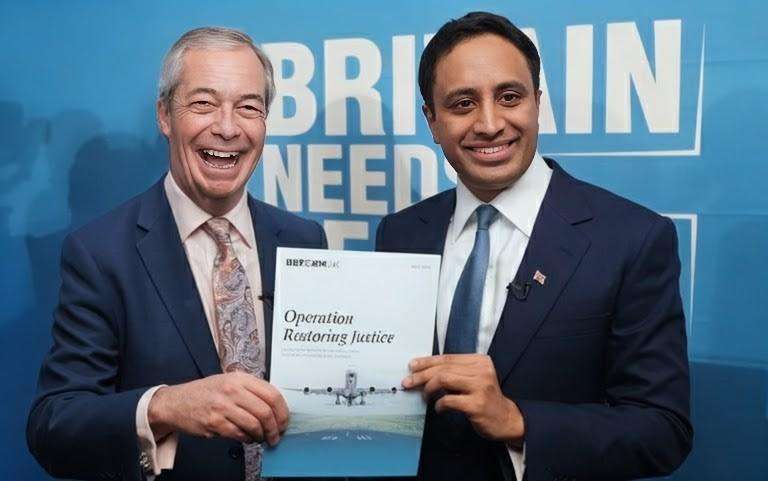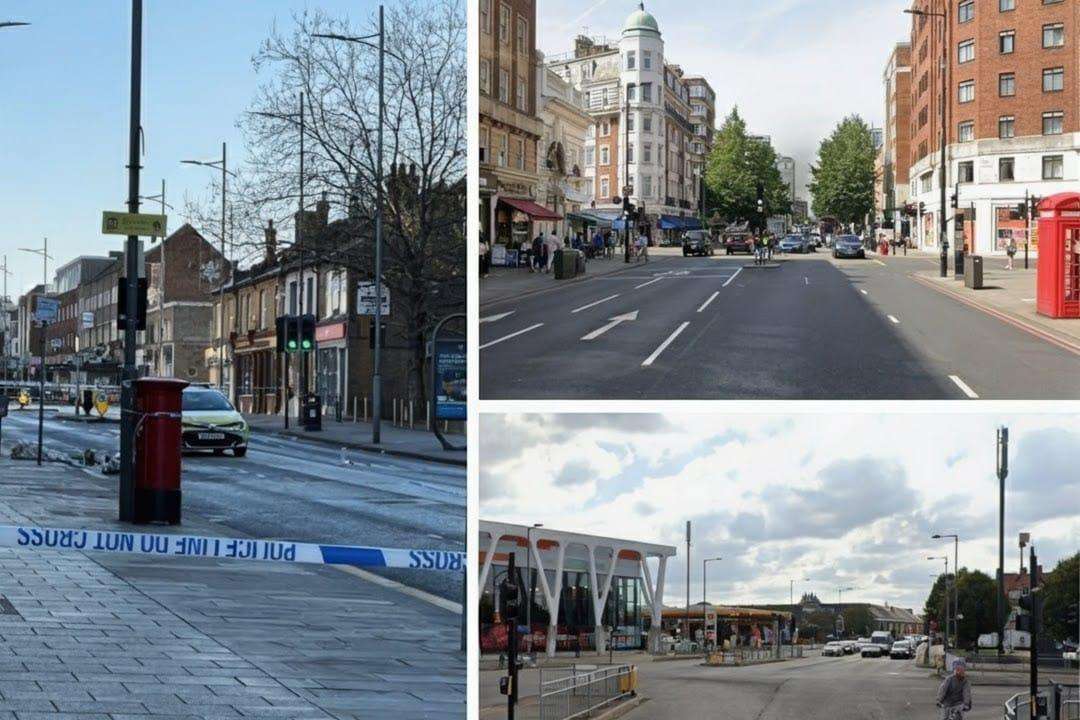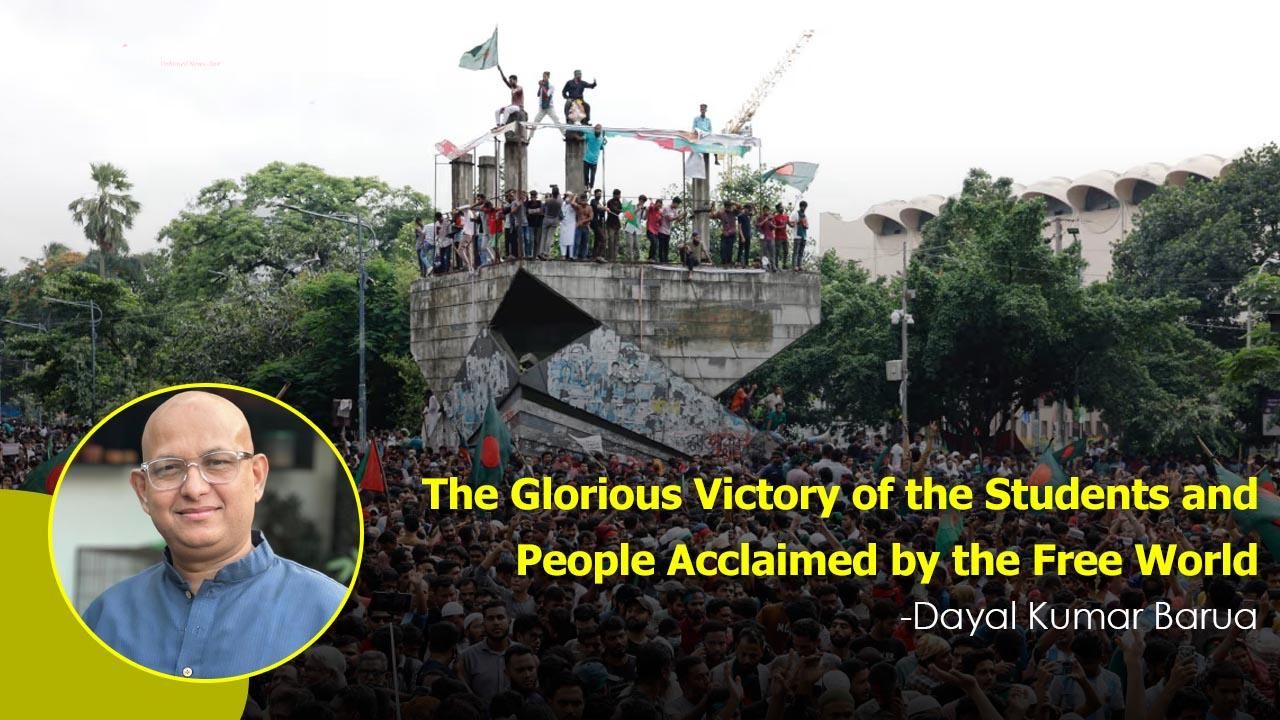August 5, 2024, stands as a bright day for the people of Bangladesh. On this day, the freedom of speech for 180 million people was achieved. In a 36-day anti-authoritarian struggle for freedom, more than 2,000 people sacrificed their lives. The July uprising of students and the masses has become a topic of global discussion. This glorious victory has been celebrated by the free world.
For nearly 16 years under an authoritarian government, and even since the country’s independence, corruption had infiltrated the state and administrative structures. Over time, the electoral system fell into the hands of a class of profiteers. Elections were marred not only by vote-rigging but also by practices where money could buy nominations and influence. Corruption and irregularities took hold everywhere, leaving no space within the state and administration untouched. The police force, meant to maintain law and order, became known among the general public as anything but a friend. The judiciary, too, succumbed to the will of authoritarianism. In administration, the principle of ‘loot and plunder’ thrived unchecked. The illegal wealth amassed by politicians and government officials began to flow out of the country, threatening to collapse the economy. Banks became sites of public fund embezzlement, with trillions of takas lost due to loans not invested properly but rather laundered and misappropriated. It is estimated that Bangladeshi politicians and officials own assets worth several trillion takas in Singapore, the UK, Canada, the USA, the Middle East, Malaysia, and Australia. Without reforms in state and government systems, any new authoritarian regime brought by elections would merely be a different version of the same problem. The interim government’s work will be smoother with political parties' support for structural reform.
In Bangladesh, treating the state machinery as inherited property had become a trait of every government. This habit destroyed the electoral system, rooted corruption deeper, and turned irregularities into norms. As the interim government is morally accountable to the uprising students and masses, it is expected to close every loophole of injustice and irregularity in state reforms.
It must be acknowledged that conspirators are trying to undermine the victory of the students and people. They have resorted to violence to divert public attention from the victory of the uprising and the fallen authoritarian regime, causing damage to both movable and immovable assets.
Care must be taken to ensure that the hard-earned victory of the students and people is not lost due to any mistakes. It should be remembered that the single-point movement of the students freed the entire nation from the clutches of the authoritarian regime led by Hasina. The interim government has succeeded in steering the national economy towards recovery in record time. Bangladesh’s global image has been enhanced, and an environment conducive to healthy and peaceful living has been created. Foreign investment in the country has increased.
However, due to the actions of a certain conspiratorial group, concerns over law and order have risen. The beauty of the July uprising is being tarnished by extortionists and criminals posing as vultures. They are attacking opponents and innocent people alike. Bullets targeting civilians are causing tragic deaths. Criminals are using the banners of various political factions for extortion, land grabbing, and other crimes.
Political parties’ cooperation is essential for maintaining law and order. However, managing crime based on party identity could have adverse effects on society and lead to chaos. Many weapons looted from police stations are yet to be recovered, and they are being used in criminal activities. Incidents of public shootings are frequent due to the proliferation of illegal weapons. Areas such as Mohammadpur and Mirpur in the capital have seen lawlessness. The administration’s failure to control crime is becoming a source of public frustration. The question arises: is there a deliberate effort to worsen law and order to steal away the hope created by the fall of the 16-year authoritarian rule? In the three months since the government's fall, 715 people have been murdered nationwide, and nearly 11,000 injured. Public lynching claimed 84 lives, sending a negative message about Bangladesh’s law and order situation to the world. To manage the deteriorating situation, the government must act decisively and be strict against criminals, irrespective of their affiliations, for the sake of its reputation.
The current government is the product of the students’ movement. This movement was successful because of years of continuous struggle. Therefore, this government’s legitimacy is tied directly to upholding the principles of justice, transparency, and democracy. Every step taken now will define its legacy.
To consolidate the achievements of the uprising, the government should prioritize educational and economic reforms. Strengthening the economy and creating job opportunities will help curb criminal activities driven by desperation and unemployment. Education must be geared towards empowering the youth, ensuring they are equipped with the skills to contribute positively to society and stand guard against future authoritarian threats.
Unity among the political parties is crucial for a stable transition to democracy. Constructive political dialogue can foster an environment where reforms are embraced, and a peaceful democratic culture is nurtured. The vision set forth by the uprising must be protected and expanded through continued dedication to public welfare and national integrity.
The victory of the students and the people has shown that collective action can overcome any obstacle. It has been a testament to the resilience of a nation yearning for freedom and justice. This chapter of Bangladesh’s history is not only a celebration but also a call to vigilance and sustained effort to ensure that democracy flourishes and authoritarianism finds no place in the country’s future.
--
Author: Columnist and President of Chittagong University Alumni, Bashundhara.
Trustee, Buddhist Religious Welfare Trust.








.svg)
